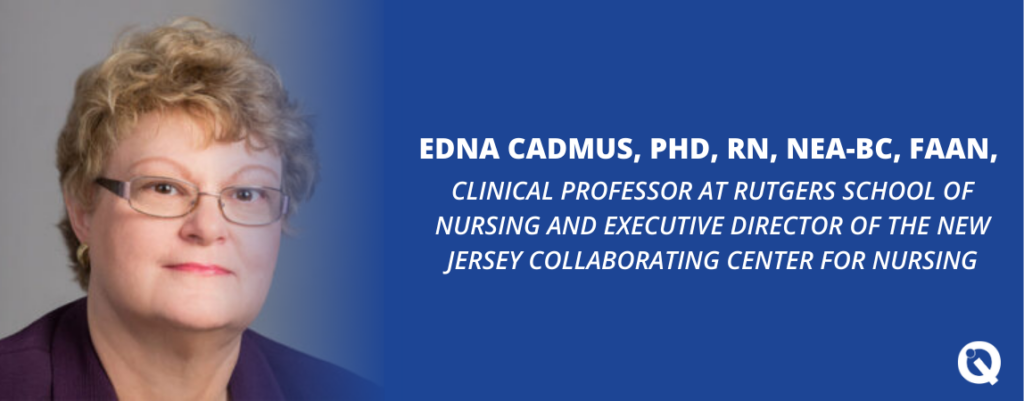The School of Nursing is a member of the Quality Institute’s Education Council and Quality Institute Chief Operating Officer Tyla Minniear serves on the Collaborating Center’s board.
The NJ Collaborating Center for Nursing (Center) released the New Jersey CNA Data & Analysis Report, which focuses on Certified Nursing Assistants (CNAs) in New Jersey. This report was funded by the NJ Department of Human Services, Division of Aging Services. Why was this survey done?
We know that there’s a shortage of CNAs in the state. We wanted to understand more about their gender, race, age, and other information so we could project for the future in terms of the number of CNAs we will need.
What did you learn from the survey — and do your findings inform any changes you think are needed to support these CNAs?
Our results were similar to those in the 2024 report from the New Jersey Task Force on Long-term Care Quality and Safety. We learned that CNAs are primarily female, Black and African American, and that 53 percent are between the ages of 46 to 65. That concerns us because 39 percent told us they plan to retire or change jobs in the next two years. These workers are invaluable to taking care of our older adults, especially in long-term care facilities. We want to make sure that we have enough CNAs to care for these folks.
We received letters from CNAs telling us they feel undervalued and unheard. It’s about their wages, their benefits. They feel a lack of respect and experience burnout. Their median hourly rate is about $20, and 22 percent said they had two or more jobs. We need to address these issues quickly. The state has ratios for CNAs and many organizations are unable to meet them.
What are the greatest challenges facing CNAs in New Jersey?
More than half have concerns regarding their personal health, such as work injuries from lifting as well as stress contributing to mental health issues. We found these direct care workers struggle with low compensation, insufficient training, and limited career paths, which drive many workers out of this sector.
What licensing and regulatory changes are needed to improve transparency around CNAs?
We really need to understand how we can help these workers. We work with the Essential Jobs Essential Care New Jersey Coalition and one area we’re looking at is moving CNA licensing to the Board of Nursing. That would allow us to have all the nursing workforce licensing and oversight in one area. CNAs currently are licensed by the New Jersey Department of Health, not the NJ Division of Consumer Affairs, where just about all other health professionals are licensed. Moving CNAs to the Board of Nursing would give us an opportunity to collect data similar to what we collect with certified home health aides. A second step is to combine the home health aides and the certified nursing assistants to one universal role so that people can work in different parts of the industry. Some of the things that are being worked on right now include offering some of the testing in different languages. That would make it easier for people to understand the questions and be able to become certified in their specialty.
Finally, we like to ask a question beyond a person’s professional work. If you could choose anyone (throughout history or alive today), who would be your hero?
I would say Geri Dickson. She was a visionary who obtained a Robert Wood Johnson Foundation grant in the 1990s to set up the New Jersey Collaborating Center for Nursing. She was faculty here at Rutgers School of Nursing. She worked tirelessly to bring the nursing community together and to get funding for our Center, which was innovative at the time. And she worked with Senator Joe Vitale to get it legislated, an innovative approach. She is one of my heroes.

